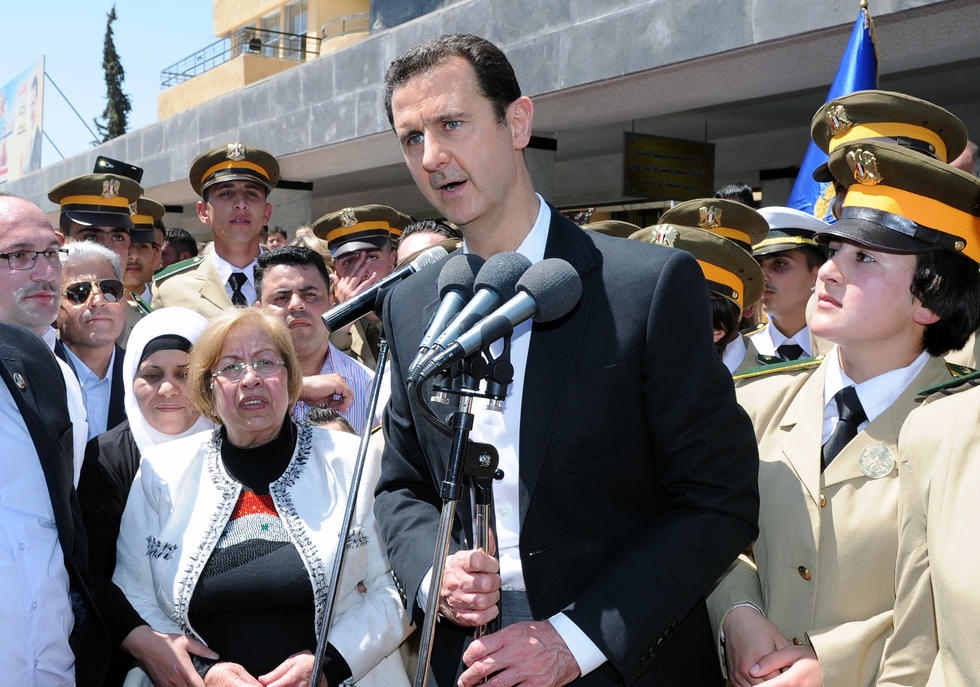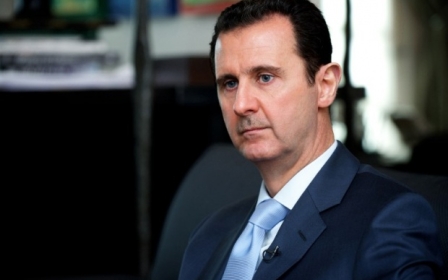Report: Emails expose cosy relations between Assad and Western journalists

A new series of leaks has reportedly emerged from the office of Syrian President Bashar al-Assad, appearing to shed light on the private correspondence of the inner circle surrounding the embattled leader during the early days of a crackdown against opposition to him.
In emails reportedly passed to Lebanese news site NOW by sources within the anti-Assad opposition, strong links between prominent journalists and the Syrian government are allegedly uncovered.
One of the journalists reported to have corresponded closely with Assad’s team is German veteran reporter Jurgen Todenhofer, who recently gained international fame after spending 10 days embedded with Islamic State (IS) in their Iraqi base of Mosul.
Three years earlier, Todenhofer reportedly exchanged a series of emails with top Assad aide Sheherezad Jaafari, at one point addressing her as “princess of the Middle East”.
Todenhofer was apparently attempting to secure a coveted interview with Assad in December 2011, when the UN estimated that 5,000 people had already been killed in a 10 month-long attempt to quash anti-government protests.
According to the string of heavily punctuated emails, Todenhofer congratulates Assad on some of his domestic policies, describing him as “the only leader who can give [Syria] a modern, democratic and stable future without foreign dominance”.
At one point in the email exchange, Todenhofer warns that “emails are not confidential,” saying instead that the pair should meet either in Syrian capital Damascus, where Assad and his coterie have been holed up since the outbreak of the uprising in 2011, or in the Italian resort town of South Tyrol.
He also says he has received “concrete” threats on his life after writing articles perceived to be pro-Assad.
Todenhofer was accused of giving Assad a platform to peddle propaganda after twice interviewing him and criticising Western coverage of the conflict as too supportive of the rebels.
In a separate exchange, an award-winning journalist from UK weekly The Sunday Times is alleged to have sent an email containing a Foreign Policy article about a group of hackers targeting the email accounts of Assad’s inner circles.
The subject of that email, purportedly sent to a close confidante of Assad from the account of Lebanese-British journalist Hala Jaber, translates as “you guys be careful”.
In a separate leak, a top British law firm is accused of threatening a prominent UK newspaper with a court battle unless it withdrew an article alleging that Assad’s wife fled Damascus to London in 2011.
In May 2011, the mass-circulation newspaper, the Daily Mail reported that the president's wife, Asma al-Assad, had secretly fled Syria to the UK with her children.
According to emails reportedly seen by NOW, the paper’s publisher was then engaged in correspondence by the controversial British law firm Carter Ruck, which specialises in media law and has been accused of “suppressing information that is in the public interest”.
The alleged leaks expand on a cache of emails reported by The Guardian in 2012, which claimed to reveal that Assad took advice from Iran during the early days of the uprising against him.
The latest series of emails also claim that Assad was online shopping for a new private jet days after forces loyal to him conducted deadly house-to-house raids in the western city of Homs.
He is also said to have been sent poetry by the late Iraqi dictator Saddam Hussein and employed senior intelligence officials who conspired to kidnap leading religious figures in Homs.
New MEE newsletter: Jerusalem Dispatch
Sign up to get the latest insights and analysis on Israel-Palestine, alongside Turkey Unpacked and other MEE newsletters
Middle East Eye delivers independent and unrivalled coverage and analysis of the Middle East, North Africa and beyond. To learn more about republishing this content and the associated fees, please fill out this form. More about MEE can be found here.




